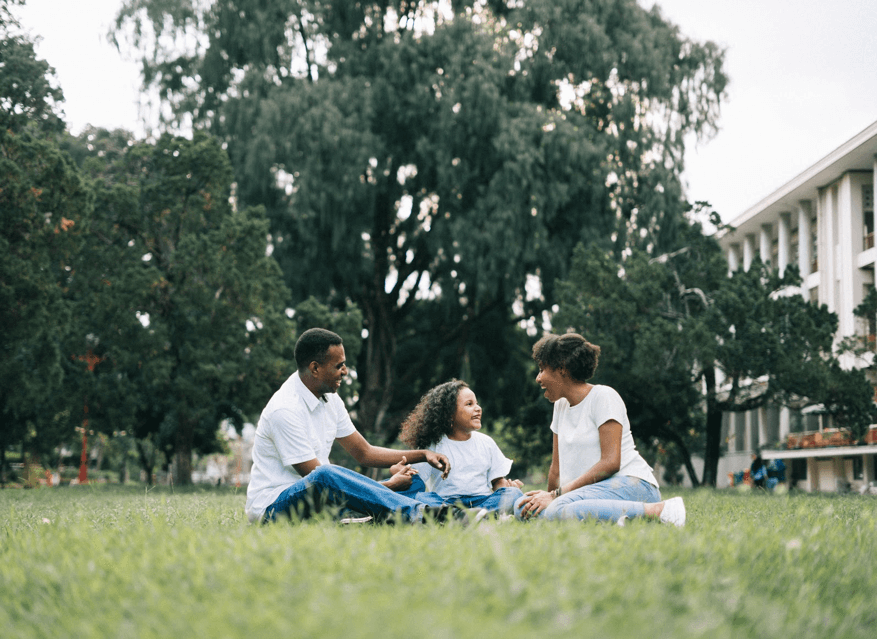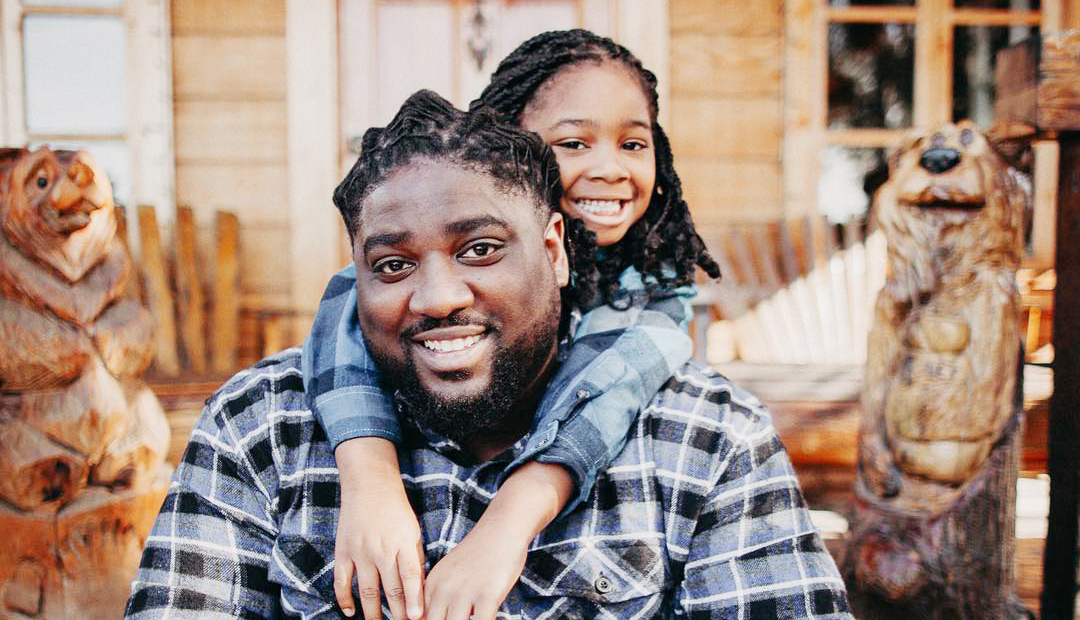
I’m in the “Mommy, why do me and dad have penises (or penii?! However you make that word plural?!) but you and my sister don’t?” stage of parenting.
When he said it, I froze at the unexpectedness of the question. I wanted a perfect answer that was honest and simple, without being transphobic.
So, I responded with, “Some people have penises and others have vulvas.” Thankfully at four-years-old, he doesn’t question the technicality of it all.
It’s scary raising two Black kids, helping them develop a healthy sense of self, and navigating the potholes the world has waiting for us. It feels like messages on consent and sex-positivity are the latest additions to an already overflowing list.
But as it turns out, sex and sexuality are lessons that our kids can’t afford to miss.
What Is Sex-Positive Parenting?
I spoke with Melissa Carnagey, LBSW, founder of Sex Positive Families, an organization that provides education and support to help families raise sexually healthy children at every age and stage. She says, “Sexuality is an integral part of being human” that is with us and “shapes how we relate to ourselves, others, and the world around us.”
She defines a sex-positive home culture as an environment where parents commit to open and ongoing conversations about sexuality, sex, and their bodies to make sure their children feel informed and supported.
It means eliminating shame, so our children feel safe to come to us with everything, even the hard stuff. And while all children need love and support to thrive, our kids – who are often treated differently than non-Black kids – can find particular benefit in a shame-free home with open communication.
“It’s important that Black youth have the opportunity to understand and connect with their bodies because in that connection is power and an understanding of their inherent worthiness. This understanding, coupled with unwavering support at home, makes youth less vulnerable to self-harm or influences that may not have their best interest in mind,” Carnagey explains.
What’s Wrong With Doing It “Old School?”

Of course, we aren’t intentionally discouraging our kids from talking to us about sex; we’re just raising them as we were. Still, ignoring conversations about sex and the body — or responding to innocent questions with accusations — sends a message they’re doing something wrong.
At Sex Positive Families, they hope to show parents that teaching sexuality from a place of fear and focusing on the negatives of sex such as early pregnancy and the risk of STI’s send the wrong message.
Carnagey says we miss out on a chance “to ensure [youth] feel prepared for sexual decision making, consent, and healthy relationships” when we fail to talk with young people about sexual pleasure.
Related: Gratitude is the Attitude: Lessons From Parenthood
Likewise, “just don’t do it” talks or suggesting sex is only happening in marriages presents its own problems – mostly, it’s a lie and leaves them underprepared.
And that’s before we even consider how women and LGBTQ+ individual’s experiences are overshadowed or ignored by most sex-ed programs, leaving them to seek answers from media and peers.
Don’t Be Afraid to Start Small
We can do this, folks. We just have to start small by planting the seeds of bodily autonomy – one’s ownership of their own body – and consent.
Telling our kids they don’t have to give hugs or kisses if they don’t want to is an easy way to start. (Also, letting them know that waves and high fives are alternatives.) Allowing them to set their own boundaries teaches our kids to trust themselves and that they always have the option to say no to physical contact.
I’ve started telling my son, “We don’t touch other people’s bodies without permission” and “We only touch our bodies in our rooms.” Hopefully, it provides the foundation to help him – and someday his younger sister – understands permission should be a non-negotiable prerequisite for touch. (The oppressive way folks perceive Black male sexuality makes this conversation even more nuanced.)
My daughter will learn that questions about sex don’t make her “fast,” just curious. Similarly, despite America’s track record of trying to control the Black female body, she will know that she alone decides if and when someone can be intimate with her.
My husband and I are working towards this by making sure we use real terms like “vulva,” “genitals,” and “penis,” instead of euphemisms in our home.
But What About Their Innocence?

Critics worry that teaching our kids real words and having conversations about sex too young sends the wrong message. Our expert shuts this down and says research suggests the opposite.
“When young people receive education and support specific to their sexual health, they are more likely to delay their sexual debut, use contraception when they do have sex, and be thoughtful about the number of sex partners they engage with,” Carnagey explains.
We can’t control when our children become sexually active. But we can make sure we’ve given them a solid foundation for having shame-free conversations about the body.
Remember, young children start out coding all language as neutral. As parents, we create the meanings they attach to the words that color our world by the way we react to them.
In our house, words like “penis” or “vulva” are just descriptors, no different from “arm” and “foot.”We’re intentional about using these words so they have been normalized and can be used when necessary.
Related: Teaching Tools to Help You Homeschool Amid Coronavirus Outbreak
The foundation we create with language matters; it will inform what issues our children believe are safe to bring to us later in life.
I want my children to feel comfortable talking to me about everything – often that means removing the filter.
Generally, it’s not even about sex. It’s so much easier to assess the kid’s body pains – and look out for things like UTI’s, a risk that comes with my son’s kidney issues – when they use the right words.
Educating Through Trauma
Many of us have our own painful stories that intensify the importance of the talks. Simply put, it’s hard to create a sex-positive environment as you’re healing from trauma.
“Parenting can be very triggering, especially if you’re a survivor of sexual trauma. Healing is a journey, not a destination, so it’s important that parents connect with the people and spaces supportive of that journey, whether it’s therapy, their faith community, a trusted peer or partner, journaling, meditation, or movement,” says Carnagey.
Books, like “The Body is Not an Apology” by Sonya Renee Taylor, and podcasts such as, “Therapy For Black Girls” might assist with that journey. (Of course, nothing replaces a relationship with a mental health professional.)
Related: How Therapy Helps Me Find My Flow

Thankfully, there’s a level of healing in knowing by embracing sex positivity we’re doing what we can to protect our children. And that’s worth acknowledging!
“See this as an opportunity to be the parent you needed growing up, and know that by raising kids in a sex-positive way, you’re equipping them with the information and support that makes them better able to advocate for their safety and pleasure along their path,” affirmed Carnagey.
Still not sure where to start? No worries. Sex-Positive Families has developed a reading list for kids of all ages to help us along the way.
—
For additional resources please visit: AMAZE, Six Minute Sex Ed Podcast, and check out Sex-Positive Families Webinars.















JOIN THE CONVERSATION